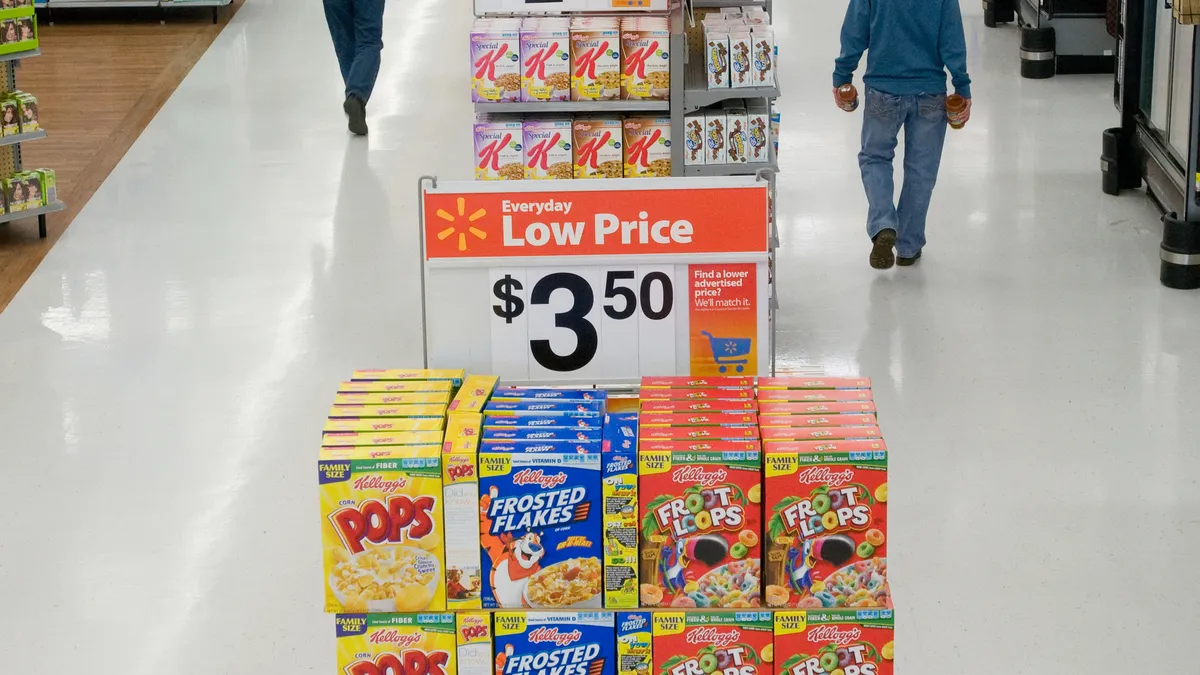Dive Brief:
- Walmart Canada will begin using blockchain technology to track deliveries, verify transactions, and automate payments and reconciliation between the retailer and 70 third-party trucking companies, the company announced Thursday.
- The system, set to go live at all third-party carriers in Canada by Feb. 1 2020, uses a shared ledger to integrate and synchronize supply chain and logistics data in real time. The platform will enable real-time invoicing, payments and settlement while integrating with each company's legacy systems.
- Developed alongside Toronto-based DLT Labs, the freight and payment network represents a "material advance" in its transportation network, according to John Bayliss, senior vice president of logistics and supply chain at Walmart Canada, in the announcement.
Dive Insight:
Walmart Canada's thirst for on-time deliveries requires a continued search for a technology to help improve its numbers as competitors close in.
With its new distributed ledger, the company is hoping to leverage copious amounts of more integral and granular data, in real time, to spot delivery bottlenecks in its network of third-party suppliers, said Loudon Owen, CEO at DLT Labs, in an interview with CIO Dive.
"The scope has increased and will continue to increase," Owen said. "This is the type of technology that has the capacity for growing and enveloping the various systems around it. The objective here was to try and properly integrate, on a transparent and fair basis, all of the information surrounding transportation and payments."
Alongside Canadian shipper Bison Transport, Walmart Canada piloted the project for the past year. As the platform developed, the project expanded to include data from internet of things (IoT) devices in an effort to increase visibility and trust into the data.
By including Bison Transport in the pilot, Walmart Canada's system is addressing one of the challenges faced by early blockchain adopters: the ability to get parties to work together.
In the U.S., Walmart has devoted efforts to blockchain in other areas, such as tracking food items through the supply chain alongside IBM or asking its suppliers of leafy greens to use blockchain for food traceability.
Industry adoption of distributed ledger technologies to track shipments will continue, Owen said. "We believe this will go viral."














